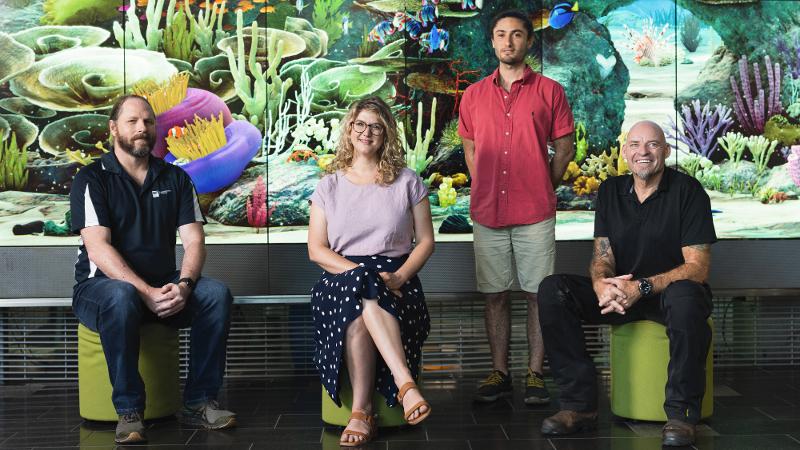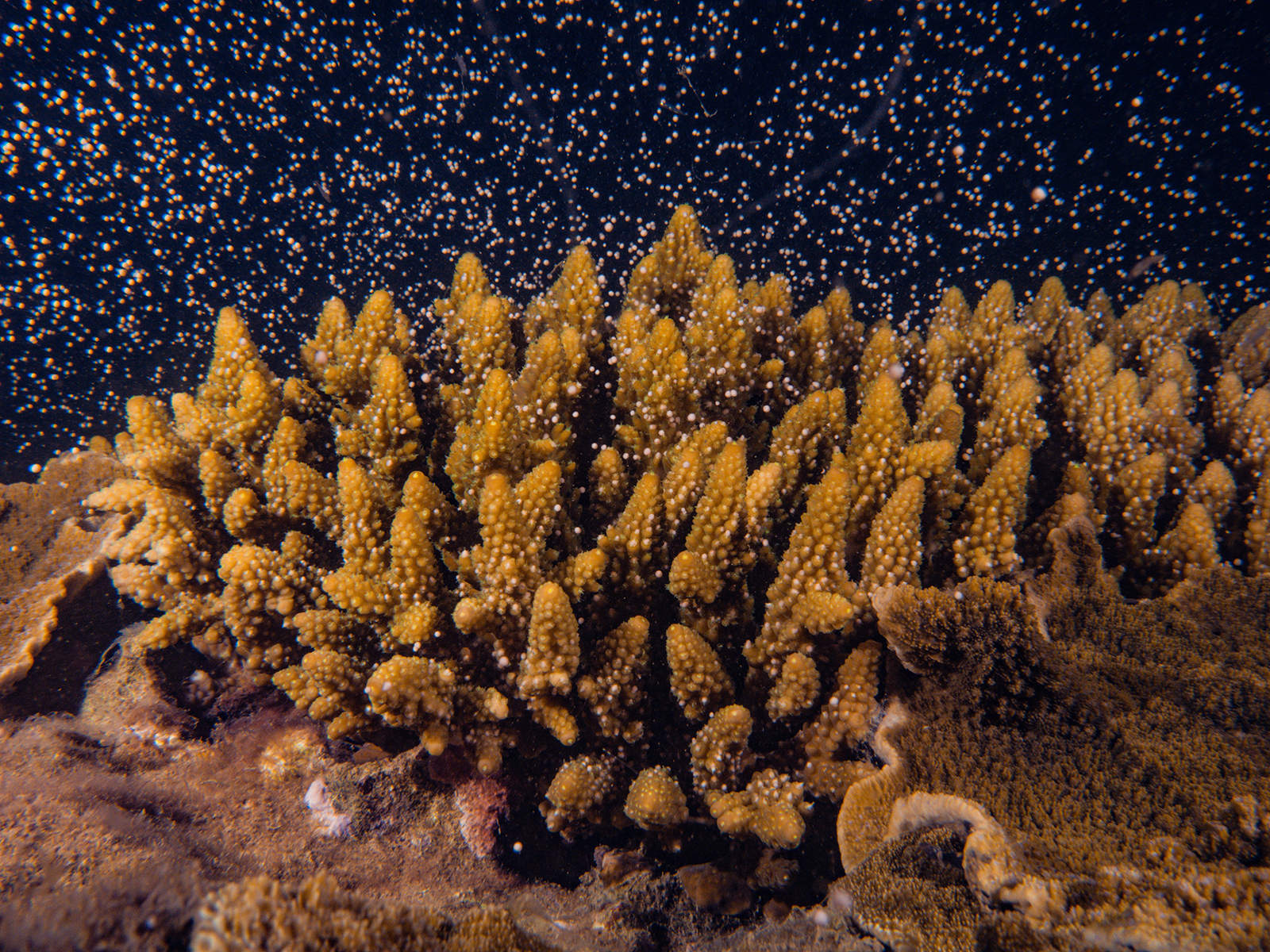
QUT researchers have used mathematics to guide decisions on growing coral to help restore the Great Barrier Reef.
Their research has been published in the journal PLOS ONE by lead author, PhD candidate Ryu Lippmann, along with Associate Professor Kate Helmstedt, Adjunct Professor Mark Gibbs and Associate Professor Paul Corry.
The new algorithm, developed for the Reef Restoration and Adaptation Program (RRAP), calculates the optimal number, location, and size of coral aquaculture facilities for large-scale reef restoration and resilience-building projects, in which coral is grown onshore and then transplanted onto the reef.
Professor Corry, from the QUT Faculty of Science, School of Mathematical Sciences, said the algorithm could help restore reefs by growing coral more efficiently.
“The impacts of climate change mean large areas of the reef will require interventions to ensure their survival. It’s critical to determine the most cost-effective way to do this to ensure the success of these restoration projects,” Professor Corry said.

Mr Lippmann said the algorithm worked out the optimal time to grow coral in nursery facilities.
“The amount of time that coral is grown in nursery tanks may affect their survival in the wild, but until now, this factor has not been explicitly quantified in production optimisation algorithms designed for other applications, such as growing crops,” Mr Lippmann said.
“We minimise costs by accounting for the trade-off between reduced production quantities with increased survival rates, and reduced costs associated with shorter growth times,” he said.
Professor Corry said predicting the cost-benefits of coral survival rates was only one of many factors that would be considered in any future reef propagation projects.
He said costs to build and run coral growth facilities and their proximity to reefs, boats needed for the project, transport expenses, as well as coral species to be grown, were all factors in the model.
The algorithm was tested on an Australian Institute for Marine Science (AIMS) reef database, making assumptions of coral survival rates, costs, and ideal survival rates.
Professor Corry said small- and medium-scale field trials of coral propagation at SeaSim, the AIMS National Sea Simulator, in Townsville would lead to an RRAP pilot study in 2025.
“Reefs may be considered for interventions by considering a range of factors, including the ecological importance of particular reefs to the surrounding environment, Traditional Owners’ knowledge and connection, and the values of local communities and industries such as tourism,” Professor Corry said.
Mr Lippmann said the algorithm could be adapted to any other environmental restoration projects where nursery growing times influenced survival in the wild.
“It could be extended to aquaculture of fish and other marine species, livestock agriculture or forestry,” Mr Lippmann said.
Professor Helmstedt said that in the era of climate change, the algorithm may have increasing applications in growing other resources to restore environments worldwide.
“All around the world we’re asking how we can protect coral reefs and other vital ecosystems. Exciting new mathematics like this provides those opportunities by providing structured and research-based ways to plan big, complicated sustainability projects.”
RRAP is funded by the partnership between the Australian Government’s Reef Trust and the Great Barrier Reef Foundation.
Main image: From L to R: Associate Professor Paul Corry, Associate Professor Kate Helmstedt, Mr Ryu Lippmann and Adjunct Professor Mark Gibbs in front of the Living Reef interactive digital display at The Cube at the QUT Gardens Point campus.
Photographer: Tony Phillips
Media contact
Sally Dillon, 07-3138 8666, s.dillon@qut.edu.au
After hours, media@qut.edu.au


